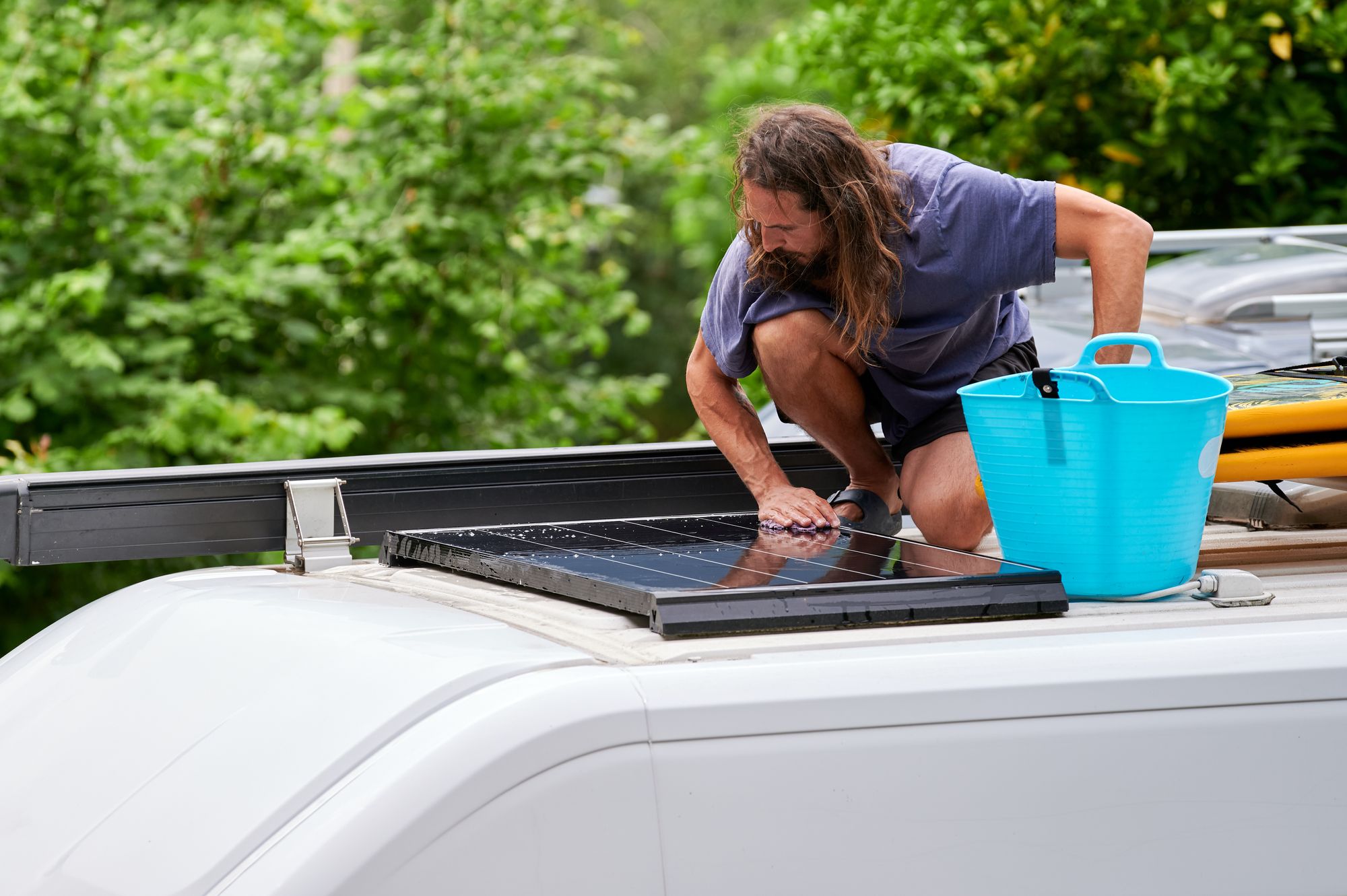With as many as 1 million Americans hitting the roads in RVs and the number continuing to grow, the RV life has gained more popularity in recent years. Not only are grandma and grandpa the ones taking adventures, but couples as young as thirty have chosen a traveling off-grid lifestyle and are living out in RVs and even school buses, also known as "skoolies."
See If You Qualify For SolarThe Cost of Glamping Adds Up
It can get costly if you're ready to hit the road with a spouse or want to venture out with the family for a few weeks, months, or maybe for the rest of your lives using traditional energy sources.
Here's the Campers Inn RV blog ultimate packing list to better understand what life on the road could require, and think of the cost while you read!
RV Essentials Surge protector, electrical adapters, toilet chemicals, sewer kit, RV-friendly toilet paper, water pressure regulator, drinking water hose, leveling blocks, tire pressure gauge, extension cords, and wheel chocks.
Kitchen and cooking supplies Garbage bags, plastic wrap, zip close bags, potholders, dish towels, napkins, can opener, skillets, disinfecting wipes.
Food staples of your choice
Clothing & bedroom items Sheets, extra blankets, pillows, and clothing for varying weather conditions during your travels.
Personal items & toiletries Phone chargers, cash and credit cards, reservation confirmations, first-aid kit, sunscreen, bug spray, batteries, watch, medications, and prescriptions.
Camping and outdoor fun gear Fishing gear, including rods, tackle, license, sports equipment, including football, basketball, baseball, mitt, yard games, corn hole, horseshoes, hula-hoops, binoculars, books, magazines, and playing cards.
Okay, so before this gets too overwhelming, we know that this list won't apply to everyone who hits the road, but without naming every essential item, you can see how traveling can get pricey.
These are just the basics; this does not include your nightly stay at a campsite like a city's local KOA, which can range from $24 to $250 per night.
RV and Skoolie Owners Are Changing the Trajectory of Their Travels With Solar Energy
With inflation, travelers are figuring out that the cost of staying at a campground has also increased. So, like homeowners who are jumping on the solar energy bandwagon and saving thousands on their power bills a year, RV owners and skoolies are incorporating solar into their lives.
Solar panels come in many different shapes and sizes and additional watts. If you're trying to be more on the independent power side, a skoolie requires anywhere from 320 watts to 2,400+ watts of solar energy, and an RV would need at least 1,700+ of solar energy to power everything from your television, fridge, or even the battery to your RV.

Self Solar Installation or Solar Company Installation?
Suppose you're looking to save a little on solar power and not have a solar company come out. You can DIY solar your RV or Skoolie and purchase what you need from an online solar energy store. There are thousands of DIY Solar resources you can gain insight and knowledge from with DIY solar YouTube tutorials and solar energy blogs written by those who have experienced a solar setup. You can build your solar kit varying by size and watt range or order a pre-packaged solar kit for your RV or SKoolie.
If you're not as handy and want to ensure that your solar is installed correctly and get a quote from a solar energy professional. In that case, you can get with a solar company in your area that would come out, take measurements, and ask you what you're looking to power and install your solar needs from there.
If you decide to self-install with a solar kit, you can find kits varying in price from $700 to up to $4k. If you choose to move forward with a professional solar company, you could take advantage of tax breaks, $0 upfront installation costs, and government-funded solar programs.
Solar is the way of the future for RV owners and skoolies.
If you or your family spend time camping and traveling in an RV or a skoolie, a solar panel setup can be a cost-effective, environmentally friendly, and convenient way to use electricity on the go. The expected lifetime of a solar panel is around 25-30 years. Solar panel systems generally require little to no maintenance, and keeping them clean is easy; use a water hose to rinse, and you're good to go!
Not Ready for DIY Solar Energy?
If you're considering becoming more power independent and not looking to install a solar system on your RV or skoolie, Energy Bill Cruncher can help! Use our free search platform to find solar companies in your area and see if you qualify for $0 down installation, solar cash incentives, solar tax credits, and more.
Takeaways
- Solar panels aren't just for the home but are hitting the road RV and skoolie style.
- Solar companies don't just install solar panels on your home but can and will install them on your RV or skoolie
- Energy Bill Cruncher can get you free side-by-side estimates with solar companies that are ready to make your travel dreams come true!





